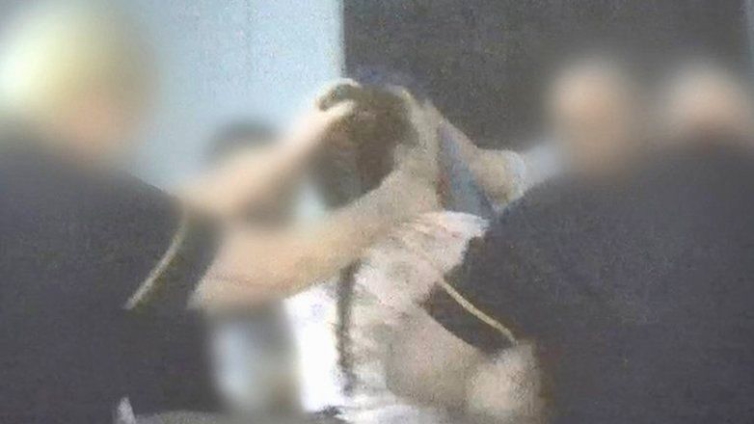A vulnerable young woman is locked on the other side of a thick glass window, crying like I have never heard anyone cry before.
For hours I have been sitting outside the small room, listening to her desperate pleas to be let out.
This is the image that haunts me from the three months I spent working undercover for BBC Panorama as a healthcare support worker.
I went in to investigate whistleblower allegations about staff behaviour and patient safety at the Edenfield Centre in Prestwich, near Manchester - one of the UK's biggest mental health hospitals.
It could be a frightening place for patients and staff.
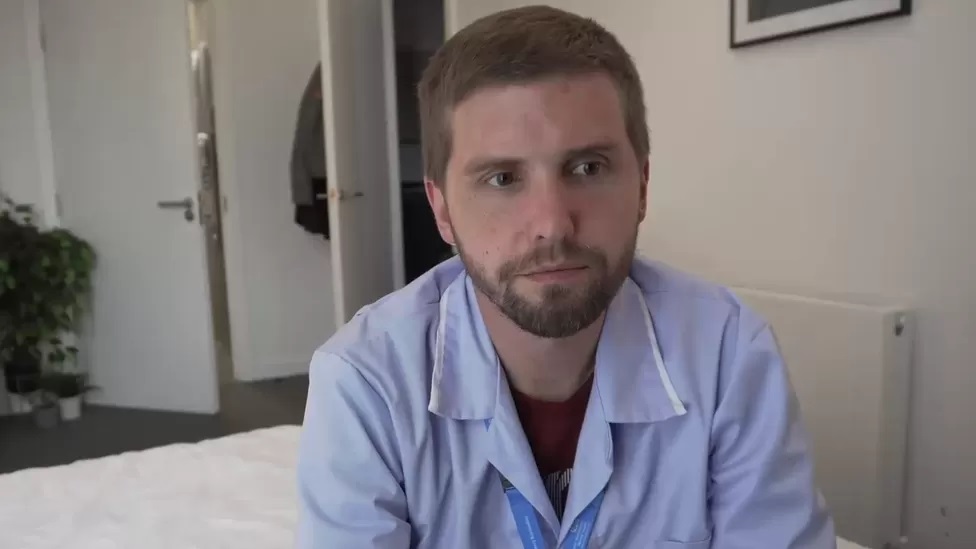
Walking through the hospital doors for the first time wired up with a secret camera, steadying my hand, swallowing my heartbeat, I thought I would surely be discovered. But I wasn't.
I had spent months preparing for this, role-playing with care specialists. Training arranged by the BBC left me confident I could give basic care to vulnerable patients and defuse potentially violent situations.
But the hospital did not know this.
Instead, before starting work, Greater Manchester Mental Health - the NHS trust which runs Edenfield - gave me a one-day online induction.
Then I was out on the ward floor, looking after patients for up to 12 hours a day. I was paid £9.51 an hour, less than some supermarkets might pay me to stack shelves.
A BBC Panorama undercover investigation has found evidence that a secure NHS psychiatric hospital is failing to protect some of its vulnerable patients.
Edenfield is a medium secure psychiatric unit; a step down from better-known high-security hospitals like Broadmoor and Rampton. Patients here are detained under the Mental Health Act because there is a serious risk they could harm themselves or others.
In practice, this can mean extremely vulnerable and sensitive patients can find themselves living alongside a convicted murderer, perhaps recently transferred from prison with mental health issues.
They live together in a highly restrictive environment and are expected to get on with each other.
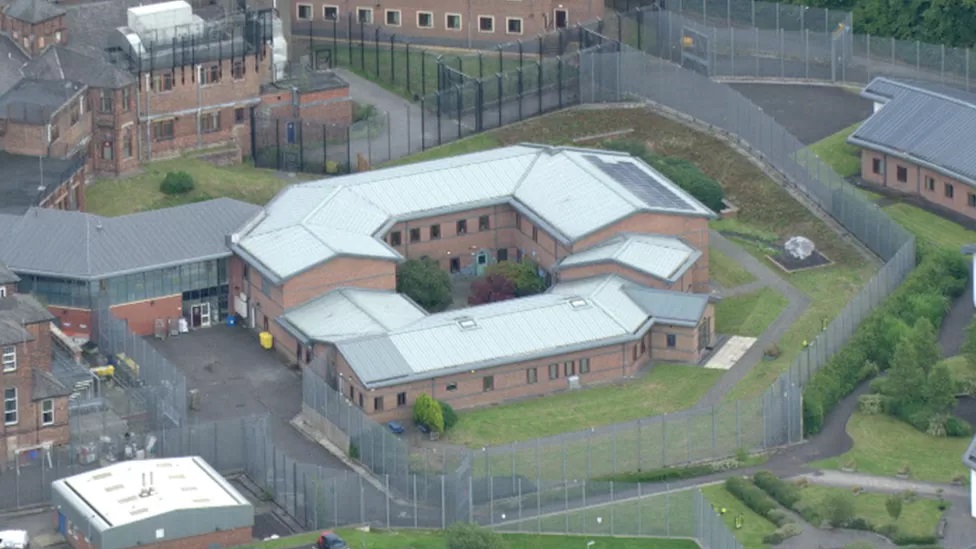
The use of seclusion rooms was the first of many shocks I encountered. It's a difficult thing to comprehend for someone like me, who had never set foot in a mental health hospital before starting this investigation.
Picture a small, square bedroom, a few metres wall to wall. Now strip away the carpets, wardrobes, drawers, mirrors, light fittings and picture frames.
You cannot open the window and someone watches you 24 hours a day, while you sleep and even when you go to the bathroom. You cannot leave this room until someone else decides you are fit to.
Seclusion is only supposed to be used in extreme cases, for the shortest time necessary, to prevent people harming others. But staff told me one woman had been confined like this for more than a year.
I spent hour after hour tasked with observing patients locked in these rooms. Some of them left a huge impression on me. I had perfectly normal conversations with articulate, funny and fiercely intelligent young people who have strong ambitions and desires to better their lives.
But instead, these patients are locked away in the formative years of their lives. Not only that, they also told me that Edenfield was actually making them worse.
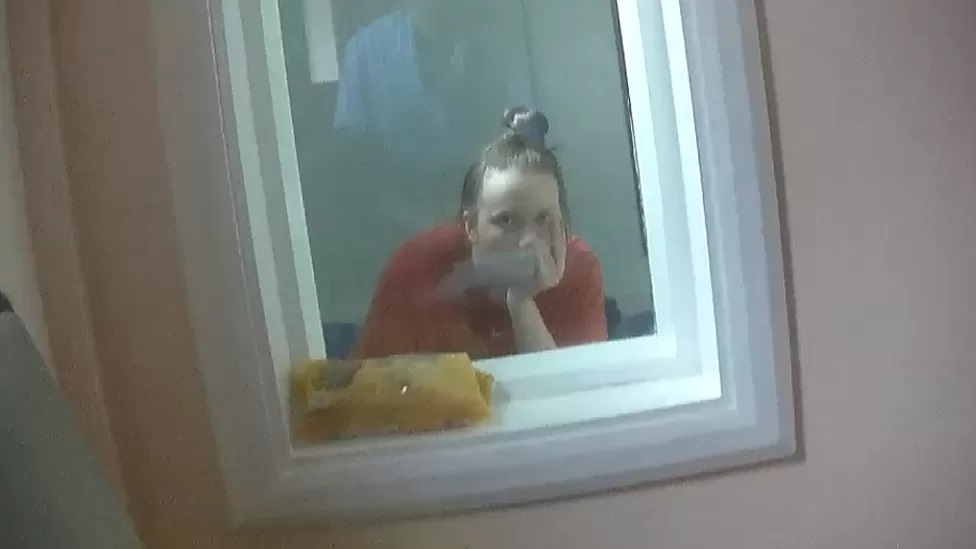
Out on the ward, it can sometimes feel like a prison. The jangle of keys, the heavy locks on every door can all make you forget you are in a hospital.
A hospital where I expected to see psychotherapists and psychiatrists, but for much of the time they were nowhere to be seen. Support workers like me spent the most time with patients.
Most of them spent their days vaping and watching music videos. It could be an excruciatingly mundane existence.
Staff told me managers were not present on the wards enough to understand the reality on the ground.
A support worker on one ward described a ward as a "dangerous shit show". Another said the hospital was "going to the dogs".
In this absence of senior leadership and managers, a bizarre dynamic evolved. Staff behaviour was strange - sometimes juvenile, sometimes actively cruel.
Staff told me they passed night shifts play-fighting with glitter bombs. One morning, I saw senior support workers playing football in an outdoor area, leaving a ward of sleeping patients unattended. And I witnessed staff sleeping on shift.
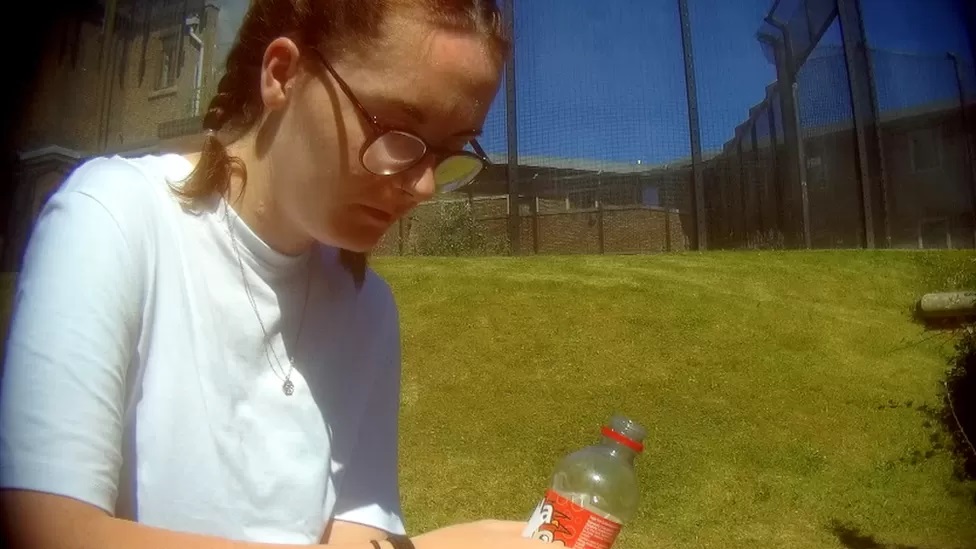
At the same time, the language used in front of patients and away from the ward floor could be horrifying at times.
Olivia, 22, told me she was teased and sworn at "all the time". She told me the hospital had made her worse in "every way", and I can understand why. She said staff swore at her in the most explicit terms, and called her "fat". I heard staff laughing at her when she was distressed - behind her back - and a nurse refusing to go and see her.
On the surface, she can seem no different to any other 22-year-old girl, but she has a history of self-harm and has repeatedly tried to end her life.
She's not the only female patient I worked with. Harley, a 23-year-old woman with autism, was spoken about throughout the hospital as if she was a kind of monster. Most staff showed little compassion or understanding about her complex needs.
She would sometimes shout, and I was told she had been aggressive towards staff, but she said she was reacting to being provoked.
I found Harley to be highly articulate with a clear understanding of the life she was missing. She knows she is not getting what she needs and was determined not to be broken.
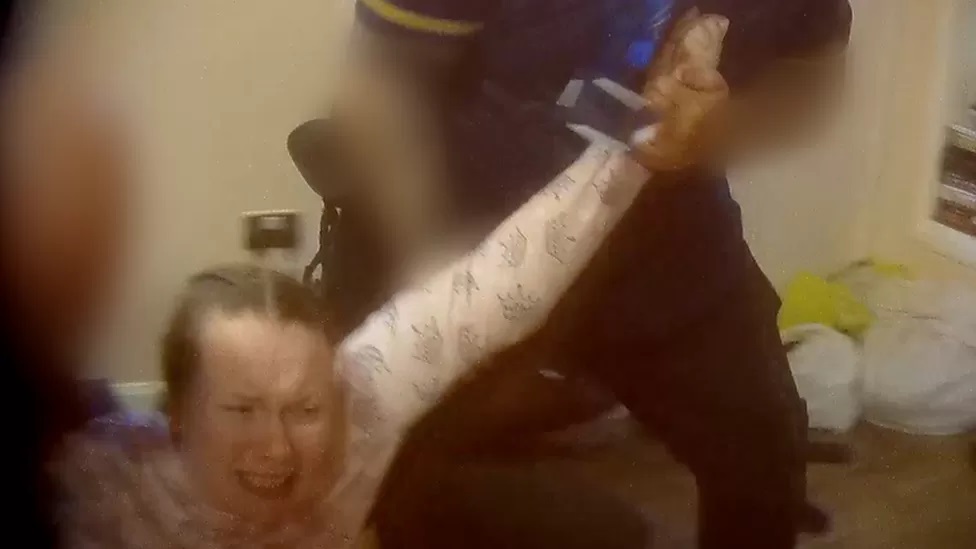
I was in the room when managers agreed she should be restrained and forcibly placed in seclusion. I saw her dragged from a mattress on the floor and pinned to the ground face down, screaming.
It was chilling.
I had to leave the room and get on with the rest of the day, but it caught up with me on the drive to my flat. I pulled over in a supermarket car park and broke down, hands shaking, tears streaming down my face. Nothing has ever upset me more.
Many of the patients feel like they've slipped through the cracks. It is an unnerving thought that almost anyone could end up somewhere like Edenfield.
For many patients, it felt like they were stuck in a holding pen, often without much hope of being released. I didn't see many getting better and I saw very little therapy to help their recovery.
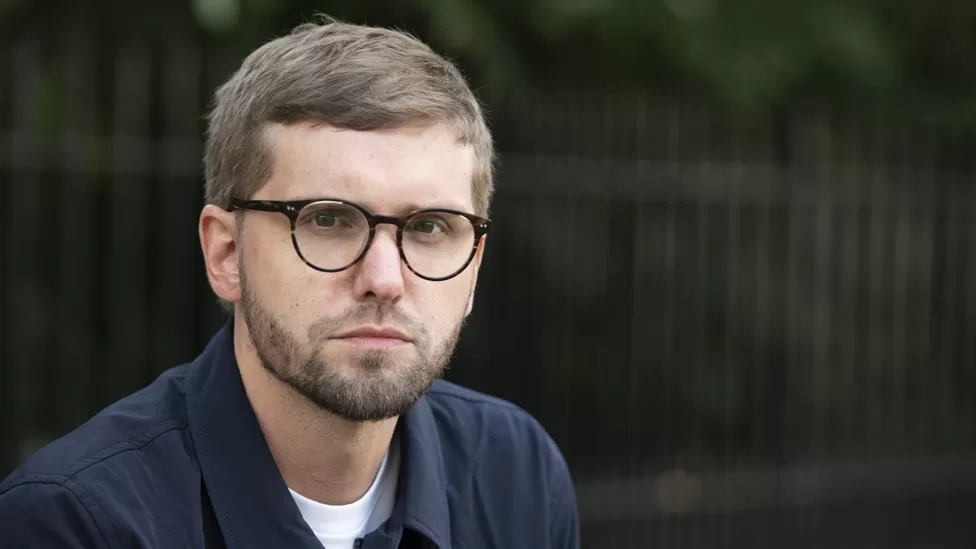
So, what happens now?
I hope the evidence I gathered can lead to real changes in patient care.
These patients have the right to be treated with dignity and with humanity. And to be properly heard. Yet it feels to me like some of them have been almost entirely forgotten by the world.
I will certainly never forget them.
****
Greater Manchester Mental Health NHS Foundation Trust said it was taking the allegations very seriously and had put in place immediate actions to protect patient safety.
A number of staff members have been suspended, and the trust is working with police, healthcare regulator the Care Quality Commission and NHS England.
Senior doctors have reviewed the patients involved and an independent clinical review of services at Edenfield has been commissioned by the trust.
It said: "We owe it to our patients, their families and carers, the public and our staff that these allegations are fully investigated to ensure we provide the best care, every day, for all the communities we serve."
Greater Manchester Police said it has opened a criminal investigation.
Latest Stories
-
Fish processors call for intervention against illegal trawling activities
2 minutes -
Ghana will take time to recover – Akorfa Edjeani
34 minutes -
Boakye Agyarko urges reforms to revitalise NPP after election defeat
53 minutes -
Finance Minister skips mini-budget presentation for third time
53 minutes -
‘ORAL’ team to work gratis – Ablakwa
1 hour -
Affirmative Action Coalition condemns lack of gender quotas in Transition, anti-corruption teams
1 hour -
December 7 election was a battle for the ‘soul of Ghana’ against NPP – Fifi Kwetey
1 hour -
Social media buzzing ahead of Black Sherif’s ‘Zaama Disco’ on December 21
1 hour -
Afenyo-Markin still suffering from the massive defeat – Fifi Kwetey
2 hours -
Retain Afenyo-Markin as NPP leader, he has experience – Deputy Speaker
2 hours -
Kufuor didn’t leave behind a strong economy – Fifi Kwetey
2 hours -
It won’t be business as usual, remain humble – Fifi Kwetey to party members
3 hours -
Ebenezer Ahumah Djietror appointed as new Clerk to Parliament
3 hours -
Actress Benyiwaa of ‘Efiewura’ TV series dead
4 hours -
Ashanti Regional Chief Imam dies at age 74
4 hours

